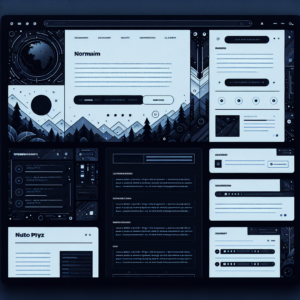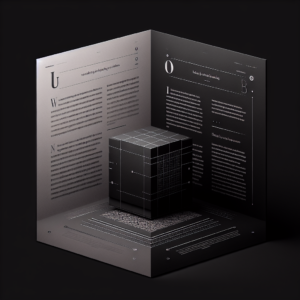TL;DR
- CVE ID: CVE-2025-1040
- Severity: High (CVSS 8.8)
- Affected Versions: AutoGPT 0.3.4 and earlier
- Vulnerability Type: Server-Side Template Injection (SSTI) leading to Remote Code Execution (RCE)
- Root Cause: Improper handling of user-supplied format strings in
AgentOutputBlock - Fix: Upgrade to AutoGPT version 0.4.0
- Impact: Attackers can execute arbitrary commands on the host system
- Disclosure Date: March 20, 2025
Introduction
A critical vulnerability, CVE-2025-1040, has been identified in AutoGPT, a popular AI-powered automation tool. The flaw allows attackers to exploit a Server-Side Template Injection (SSTI) vulnerability, potentially leading to Remote Code Execution (RCE) on affected systems. This issue, rated as High severity (CVSS 8.8), stems from improper handling of user-supplied format strings in the AgentOutputBlock implementation, which are passed to the Jinja2 templating engine without adequate security measures12.
The vulnerability affects AutoGPT versions 0.3.4 and earlier, and has been patched in version 0.4.0. Organizations and security researchers using AutoGPT are urged to update their installations immediately to mitigate the risk of exploitation.
Technical Breakdown
The vulnerability arises due to the improper handling of user-supplied format strings in the AgentOutputBlock implementation. When malicious input is passed to the Jinja2 templating engine, it can lead to Server-Side Template Injection (SSTI). This allows attackers to inject and execute arbitrary code on the host system, potentially compromising the entire environment13.
Key Details:
- Attack Vector: Network (exploitable remotely)
- Complexity: Low (requires minimal privileges)
- Impact: High (confidentiality, integrity, and availability are all at risk)
- CVSS Vector: CVSS:3.0/AV:N/AC:L/PR:L/UI:N/S:U/C:H/I:H/A:H2
The vulnerability was first reported by security researcher superboy-zjc through the huntr.dev bug bounty platform, which specializes in AI/ML vulnerabilities7. The researcher demonstrated that the flaw could be exploited to execute arbitrary commands, making it a critical issue for organizations relying on AutoGPT for automation tasks.
Exploitation and Impact
Exploiting this vulnerability could allow attackers to:
- Execute arbitrary commands on the host system.
- Gain unauthorized access to sensitive data.
- Disrupt operations by modifying or deleting critical files.
The Jinja2 templating engine is widely used in Python applications, making this vulnerability particularly concerning for environments where AutoGPT is integrated into larger systems. Attackers with low privileges can exploit this flaw, making it a high-risk issue for organizations27.
Mitigation and Recommendations
The issue has been resolved in AutoGPT version 0.4.0. Users are strongly advised to:
- Upgrade immediately to the latest version.
- Audit logs for any suspicious activity, particularly in environments where AutoGPT is exposed to untrusted inputs.
- Monitor for any signs of exploitation, such as unexpected system behavior or unauthorized access.
For security researchers and red teamers, this vulnerability presents an opportunity to test and validate the effectiveness of patch management processes in their environments. Additionally, it highlights the importance of secure coding practices when working with templating engines like Jinja2.
Why This Matters
This vulnerability underscores the risks associated with AI-powered tools and the importance of securing their underlying frameworks. As organizations increasingly adopt AI for automation, vulnerabilities like CVE-2025-1040 can have far-reaching consequences, including data breaches, operational disruptions, and reputational damage.
For red teamers, this flaw serves as a reminder to:
- Conduct thorough code reviews of AI tools.
- Test for SSTI vulnerabilities in applications using templating engines.
- Stay informed about emerging vulnerabilities in AI/ML frameworks.
Conclusion
CVE-2025-1040 is a stark reminder of the security challenges posed by AI-driven tools. While AutoGPT has addressed the issue in version 0.4.0, the broader implications for AI security remain significant. Organizations and security professionals must remain vigilant, ensuring that AI tools are both powerful and secure.
For further details, refer to the official National Vulnerability Database (NVD) entry1 and the GitHub Advisory Database2.
References
- NVD (March 20, 2025). “CVE-2025-1040 Detail“. National Vulnerability Database. Retrieved March 21, 2025.
- GitHub Advisory Database (March 20, 2025). “CVE-2025-1040“. GitHub. Retrieved March 21, 2025.
- Tenable (March 20, 2025). “Updated CVEs“. Tenable. Retrieved March 21, 2025.
- Vulmon (March 20, 2025). “CVE-2025-1040 vulnerabilities and exploits“. Vulmon. Retrieved March 21, 2025.
- INCIBE-CERT (March 20, 2025). “CVE-2025-1040“. INCIBE-CERT. Retrieved March 21, 2025.
- Simply Data (March 20, 2025). “Simplifying Packet Analysis“. Simply Data. Retrieved March 21, 2025.
- huntr (March 10, 2025). “AutoGPT SSTI Vulnerability Leading to Remote Code Execution (RCE)“. huntr. Retrieved March 21, 2025.
- NoHackMe (March 20, 2025). “Les dernières vulnérabilités“. NoHackMe. Retrieved March 21, 2025.
Metadata
Keywords: CVE-2025-1040, AutoGPT, SSTI, RCE, Jinja2, Server-Side Template Injection, Remote Code Execution, AI security, vulnerability, huntr.dev, CVSS 8.8






